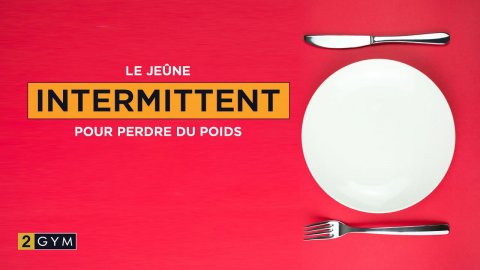General Information
Glycogen is involved in maintaining glucose homeostasis and is primarily regulated by insulin, glucagon, and molecules in their downstream signaling pathways. Insulin promotes glycogen synthesis, while glucagon promotes its breakdown.
Glycogen contains small amounts of phosphate and glucosamine. The source and function of phosphate and glucosamine in human glycogen are unknown.
In linear chains, glucose residues are linked by α-1,4-glycosidic bonds, and α-1,6-glycosidic bonds create branch points. The branches in normal glycogen are distributed at regular intervals, giving the molecule a spherical shape.
A glycogen particle consists of 55,000 glucose residues. In skeletal muscles, glycogen particles are 10–44 nm in diameter, while in the liver, they are about 110–290 nm. Glycogen can be identified using electron microscopy within cells. [3]
Chemical Formula |
C24H42O21 |
Biological Role
Glycogen metabolism is crucial for many physiological processes in the human body. Glycogen stores are used as fuel during periods of fasting or muscle activity.
Both glycogen synthesis and breakdown are complex processes requiring the coordinated action of several enzymes. Congenital deficiency of these enzymes usually leads to fasting hypoglycemia, exercise intolerance, or both.
Some glycogen metabolism disorders have significant effects on the nervous system. Congenital deficiency of the glycogen branching enzyme (polyglucosan disease) has devastating neurological consequences, including cognitive impairment and axonal neuropathy.
Mutations in the glucose-6-phosphatase gene lead to dysfunction of proximal tubules and renal failure. Mutations in the glucose transporter GLUT2 also cause proximal tubular nephropathy.
Congenital deficiency of the glycogen branching enzyme (GSD type IV) can rarely cause proteinuria, stroke-like episodes, and hypohidrosis, suggesting a diagnosis of Fabry disease.
Glycogen is a vital molecule for the health of the cardiovascular system.
Glycogen metabolism can be disrupted in diabetic patients due to inactivating mutations in the glucokinase gene, highlighting the role of glucose phosphorylation in the pathogenesis of diabetes mellitus. Patients with glucokinase deficiency have impaired liver glycogen replenishment after meals.
Regulation
Glycogen is an important compound for maintaining glucose homeostasis, with its synthesis and breakdown occurring depending on the body's needs.
As mentioned above, the two main peptide hormones involved in its regulation are insulin and glucagon, which promote anabolism and catabolism. Understanding the effect of these two hormones is important in the context of glycogen metabolism.
Insulin signals a high-energy state. Thus, its subsequent actions include the synthesis of lipids and glycogen synthesis.
Glucagon signals a low-energy state; therefore, its subsequent effect is the opposite of insulin's action. That is, increased glucagon release will lead to the subsequent effect of increased lipolysis and glycogen breakdown to meet the body's energy needs.
Specifically, the subsequent effects of insulin and glucagon alter the activity of several enzymes involved in glycogen metabolism through dephosphorylation and phosphorylation respectively.
Insulin is associated with the activation of protein phosphatase 1 (PP1) and protein kinase B (PKB). Glucagon is associated with the cAMP-mediated pathway, which activates protein kinase A (PKA).
Glycogen synthesis or glycogenesis requires a series of chemical reactions, including the uptake of glucose into the cell through transporters, phosphorylation of glucose to glucose-6-phosphate, isomerization to glucose-1-phosphate, and the formation of uridine-5'-diphosphate-glucose, which is the direct glucose donor for glycogen synthesis.
Glycogen breakdown or glycogenolysis primarily requires glycogen phosphorylase and debranching enzyme. Glycogen phosphorylase involves the uptake of phosphate (Pi) and PLP (pyridoxal phosphate), a cofactor derived from vitamin B6. [4]
Metabolism
Glycogen is primarily stored in the liver and skeletal muscles. Glycogen stores in the liver and skeletal muscles perform partially different functions and are regulated differently.
Liver glycogen supplies glucose primarily to the bloodstream during periods of fasting, while glycogen stored in skeletal muscles supplies glucose to muscle fibers during muscle contraction.
Therefore, liver glycogen content decreases during fasting, while muscle glycogen content decreases after exercise in working muscles. Significant reduction in muscle glycogen content does not occur during short periods of fasting.
These two main glycogen stores are physiologically linked to each other, as liver glycogen delivers glucose to the bloodstream during exercise, and lactate produced in muscles during muscle contractions is converted to glucose in the liver, contributing to glycogen replenishment in the liver.
During physical activity, glucose uptake by the contracting muscle increases despite low insulin concentration.
Liver Glycogen Metabolism
In healthy individuals, liver glycogen is predominantly replenished after meals. The source of glucose fragments forming the glycogen particle in the liver is either food (direct glycogen synthesis pathway) or the gluconeogenesis pathway (indirect glycogen synthesis pathway), which produces glucose-6-phosphate from precursors such as lactate and alanine. [5]
Among patients with congenital glucokinase deficiency, the indirect pathway becomes more important than the direct pathway of glycogen synthesis after meals because the phosphorylation of glucose to glucose-6-phosphate in the liver is impaired, preventing the utilization of glucose derived from food. [6]
The role of other monosaccharides, such as fructose and galactose, as sources of liver glycogen in humans is unclear. Dietary galactose is estimated to contribute approximately 19% to liver glycogen synthesis in healthy individuals. [7]
It has been reported that galactose or fructose supplements are more effective than glucose in restoring liver glycogen after exercise in trained subjects. [8]
Skeletal Muscle Glycogen Metabolism
Glucose released from glycogen is the main energy source for contracting muscles, and high-intensity exercise depletes glycogen stores in active skeletal muscles.
Notably, regular training affects the muscle tissue's ability to store more glycogen during the recovery period after physical activity. More details below.
Exercise Reduces Glycogen Content in Contracting Skeletal Muscles
Biopsies of skeletal muscles taken from healthy volunteers show that glycogen content is significantly reduced after cyclical exercises in working muscles, while glycogen levels in inactive muscles remain unchanged [9] [10]
The ability of skeletal muscles to endure physical activity is related to muscle glycogen content, and fatigue develops when glycogen stores in active muscles are depleted. [9]
It has been reported that fructose administration to preserve muscle glycogen is similar to glucose or placebo [11], or better than glucose or placebo. [12]
Increased plasma concentration of free fatty acids promotes glycogen storage in skeletal muscles during physical activity [13]
Exercise Promotes Glycogen Accumulation in Previously Active Skeletal Muscles
Biopsy samples of skeletal muscles from healthy volunteers show that glycogen content during recovery rapidly increases in previously trained muscles, reaching a higher level over time compared to the pre-exercise level [9] [10]
Subsequently, exercise enhances the ability of skeletal muscles to store glycogen, increasing glycogen reserves in active muscles.
Additionally, training reduces muscle glycogen utilization during exercise in healthy individuals, enhancing the ability of skeletal muscles to metabolize fat. [13]
Therefore, muscle glycogen content is higher in endurance-trained individuals compared to untrained ones. [14]
Increased glycogen synthesis in response to previous exercise requires intact glycogenolysis. Individuals with McArdle's disease have insufficient glycogenolysis in skeletal muscles due to a congenital deficiency of glycogen phosphorylase.
These individuals exhibit low basal glycogen synthase activity and reduced glycogen synthase activation after physical activity compared to the control group. [15]
In addition to exercise, muscle glycogen content itself influences glycogen synthesis in healthy individuals. High glycogen concentration suppresses glycogen synthesis in skeletal muscles. [16]
The effectiveness of fructose, galactose, and amino acids in enhancing glycogen recovery has been studied in several studies. It has been reported that the rate of glycogen synthesis in trained muscles during the recovery period is higher with glucose administration compared to fructose. Adding fructose to glucose does not enhance the recovery ability of glucose alone. [17]
Co-ingestion of amino acids and carbohydrates does not increase the rate of glycogen synthesis in skeletal muscles after exercise compared to the same amount of carbohydrates in healthy individuals. [18] In trained subjects, adding amino acids to galactose does not improve muscle glycogen recovery. [19]


